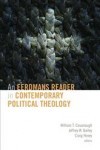
We began work on this Reader with the realization that there was no recent collection of readings in contemporary political theology. Our moment is complex and difficult to come to grips with. It is characterized by God refusing to go away, with people of numerous faiths not taking the much-touted, purely secular politics lying down. Whether one sees this as a recent development (post-9/11, say) or the way things have always been depends largely on one’s perspective. Do the most pressing questions have to do with Christian theology’s inherent and ineradicable relevance to all things political (human well-being, the nature of power, and so on)? Or do they have to do with the reverse—the fundamentally theological nature of politics, even where religious questions have been thought most successfully to have been purged from it? It will take more than a reader to answer such questions, but collecting a wide variety of voices in one place can help us understand why we are now faced with them.
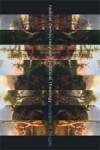
The business of religion, to use that unfortunate turn of phrase, is to change the world. The theo-political implication of radical democracy is that we cannot wait for a God to save us. If democracy indeed is the political instantiation of the death of God, then this is a task that is ours alone.
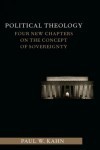
In my prior posting, I was concerned with elaborating the disciplinary position from which I take up the project of political theology. It is a part of the secular study of our political practices and beliefs. Accepting these limits, I placed myself within the same modernist tradition as liberal political theory.
There is a deeper point to be made about the symmetry between theory and practice in the modern age. Liberal political theory is committed to the idea that an adequate account must be one that is fully transparent to reason. Theory is to be built through discrete, rational steps from common premises that purport to be universal. Accordingly, it is hostile to any privileged claims made on the basis of a particular faith, including claims for the existence of God or a natural order. In a parallel fashion, the modern, political order is to be autochthonous. It is to rest on nothing outside of itself. This is not a claim about history, which knows no beginnings; rather, it describes a secular understanding of the origin and ground of the state. This is an important idea, for example, in the decolonization movement: a post-colonial state can create itself through an original founding act. It need not express a pre-existing national or ethnic identity.
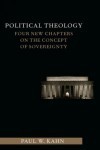
It is certainly interesting to see a reflection of myself in the response of another discipline, even if I sometimes have trouble recognizing that image. Most useful will be for me to address the meaning of the gap between the two different political theological enterprises represented in this discussion. I will begin by making clear what the idea of a political theology contributes to my project. Following that, I will defend some of the contested theoretical premises of my work. Finally, I will take up the hardest question that emerges from this discussion: is it really the case that my political theological project is non-normative? If there is an implicit normative claim in my work, then the reviewers are right to ask not just whether I have got my description of American politics right, but whether the ethical direction of my work can be supported.
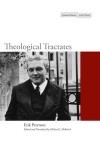
“Political theology” as discourse came back into circulation almost a hundred years ago thanks to the efforts of Carl Schmitt. In Germany, at least, its feasibility as a theological category was promptly booted out of play by his close friend Erik Peterson (d. 1960) in an oft-cited – but less often read – monograph on “Monotheism as a Political Problem” (1935). That and other writings of Peterson’s are now available in English translation, most of them for the first time, in my edition of Theological Tractates (Stanford University Press, 2011). Peterson reveals himself to have been an “anti-political” theologian who yet possessed an acute sense of the political dimension of subjects as diverse as liturgy, mysticism, ecclesiology, and martyrdom.

The book began with my conviction that the theology and philosophy of the early modern period is especially important for understanding Christian ethics today. It’s needed for us to figure out “how we got to where we are in our thinking,” as Nick Wolterstorff once put it. It is thus a hinge point on which subsequent church history turns. This is especially the case because it was in this period that there first emerged the plurality of moral languages that we now call pluralism, but which was originally a collection of writers (mostly Christian) casting about for a way to best express questions that had become pressing in their time.

In “A Public Faith” I offer a sketch of an alternative to totalitarian saturation of public life with a single religion as well as to secular exclusion of all religions from public life. I write as a Christian theologian to followers of Christ. I am not writing as a generic religious person to adherents of all religions, a project that would fail from the start. To stay with the example of Qutb, it is a task of Muslim scholars to elaborate distinctly Islamic alternatives to Qutb. My task is to offer a vision of the role of the followers of Jesus Christ in public life, a role that stays clear of the dangers of both “exclusion” and “saturation.”
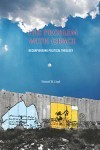
First, I want to take social practices and norms as foundational. They do not come from anywhere else, not from people or institutions or God. It is practices and norms all the way down, as it were. Second, I want to present practices and norms as always in conflict. Norms are derived from practices, but they always misrepresent practices; practices are pulled towards norms.
I have been only sporadically involved in politics throughout my ministry, generally considering political engagement by clergy to be a decidedly mixed bag. My high calling as a preacher didn’t seem to mesh well with the grubby compromise demanded by democratic politics.Then the church sent me to be bishop in Alabama.
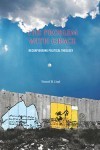
Locating a middle requires, first, the critique of ideology, which determines the options that appear before us. But the critique of ideology requires an attentiveness to tradition, and to social practices and norms. The “Continental” side talks a lot about ideology critique, but rarely does more than gesture towards those social realities.

